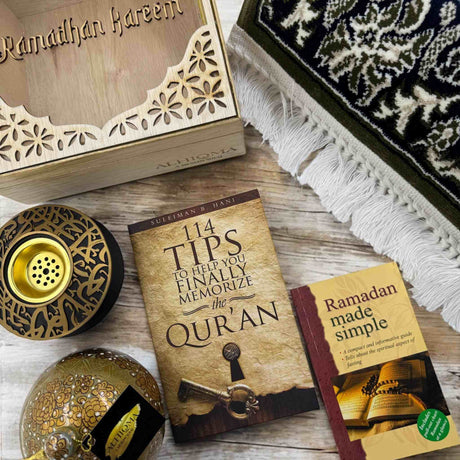Key Takeaways:
-
Divine Attributes: Asma'ul Husna are the beautiful names of Allah, each representing a different facet of His divine essence and characteristics.
-
Invocation in Supplication: Muslims can use these names in their duas (supplications) to seek Allah's help, guidance, mercy, and blessings.
-
Spiritual Growth: Learning and reflecting upon the meanings of Asma'ul Husna fosters a deeper understanding of Allah's nature and strengthens one's faith.
Discover the power of Asma'ul Husna in your prayers! Learn the 99 names of Allah and their meanings to enhance your spiritual journey and strengthen your connection with Allah. Begin incorporating these names in your daily duas for a more meaningful and fulfilling prayer experience. Explore resources to guide you on this journey and unlock the profound wisdom of Allah's beautiful names today!
The 99 names of Allah, also known as Asma'ul Husna, are attributes or qualities of Allah. Muslims believe that these names encompass all the characteristics of Allah and can be used in duas (supplications) to seek His help, guidance, and blessings. Here's the list of Allah's 99 names:
- Ar-Rahman (The Most Merciful)
- Ar-Rahim (The Most Compassionate)
- Al-Malik (The Sovereign Lord)
- Al-Quddus (The Most Holy)
- As-Salam (The Source of Peace)
- Al-Mu'min (The Giver of Faith and Security)
- Al-Muhaymin (The Protector and Guardian)
- Al-Aziz (The Mighty)
- Al-Jabbar (The Compeller)
- Al-Mutakabbir (The Most Majestic)
- Al-Khaliq (The Creator)
- Al-Bari (The Evolver)
- Al-Musawwir (The Fashioner)
- Al-Ghaffar (The Most Forgiving)
- Al-Qahhar (The Subduer)
- Al-Wahhab (The Bestower)
- Ar-Razzaq (The Provider)
- Al-Fattah (The Opener)
- Al-'Alim (The All-Knowing)
- Al-Qabid (The Withholder)
- Al-Basit (The Expander)
- Al-Khafid (The Abaser)
- Ar-Rafi' (The Exalter)
- Al-Mu'izz (The Honourer)
- Al-Mudhill (The Dishonourer)
- As-Sami' (The All-Hearing)
- Al-Basir (The All-Seeing)
- Al-Hakam (The Judge)
- Al-'Adl (The Just)
- Al-Latif (The Most Subtle)
- Al-Khabir (The All-Aware)
- Al-Halim (The Most Forbearing)
- Al-Azim (The Magnificent)
- Al-Ghafur (The Oft-Forgiving)
- Ash-Shakur (The Most Appreciative)
- Al-Aliyy (The Most High)
- Al-Kabir (The Most Great)
- Al-Hafiz (The Preserver)
- Al-Muqit (The Sustainer)
- Al-Hasib (The Reckoner)
- Al-Jalil (The Majestic)
- Al-Karim (The Most Generous)
- Ar-Raqib (The Watcher)
- Al-Mujib (The Responsive)
- Al-Wasi' (The All-Encompassing)
- Al-Hakim (The Wise)
- Al-Wadud (The Most Loving)
- Al-Majid (The Most Glorious)
- Al-Ba'ith (The Resurrector)
- Ash-Shaheed (The Witness)
- Al-Haqq (The Truth)
- Al-Wakil (The Trustee)
- Al-Qawiyy (The Most Strong)
- Al-Matin (The Firm)
- Al-Waliyy (The Protecting Friend)
- Al-Hamid (The Praiseworthy)
- Al-Muhsi (The Reckoner)
- Al-Mubdi (The Originator)
- Al-Mu'id (The Restorer)
- Al-Muhyi (The Giver of Life)
- Al-Mumit (The Creator of Death)
- Al-Hayy (The Ever-Living)
- Al-Qayyum (The Sustainer)
- Al-Wajid (The Finder)
- Al-Majid (The Most Glorious)
- Al-Wahid (The One)
- As-Samad (The Eternal, The Absolute)
- Al-Qadir (The Most Capable)
- Al-Muqtadir (The All-Powerful)
- Al-Muqaddim (The Expediter)
- Al-Mu'akhkhir (The Delayer)
- Al-Awwal (The First)
- Al-Akhir (The Last)
- Adh-Dhahir (The Outward)
- Al-Batin (The Inward)
- Al-Wali (The Governor)
- Al-Muta'ali (The Self-Exalted)
- Al-Barr (The Source of All Goodness)
- At-Tawwab (The Acceptor of Repentance)
- Al-Muntaqim (The Avenger)
- Al-'Afuww (The Pardoner)
- Ar-Ra'uf (The Most Kind)
- Maliku'l-Mulk (The Owner of All Sovereignty)
- Dhu'l-Jalali wal-Ikram (The Lord of Majesty and Generosity)
- Al-Muqsit (The Equitable)
- Al-Jami' (The Gatherer)
- Al-Ghani (The Self-Sufficient)
- Al-Mughni (The Enricher)
- Al-Mani' (The Preventer)
- Ad-Darr (The Distresser)
- An-Nafi' (The Benefactor)
- An-Nur (The Light)
- Al-Hadi (The Guide)
- Al-Badi' (The Incomparable)
- Al-Baqi (The Everlasting)
- Al-Warith (The Heir)
- Ar-Rashid (The Guide to the Right Path)
- As-Sabur (The Most Patient)
- Ar-Rahman (The Most Merciful)
The 99 names of Allah, also known as Asma'ul Husna, encompass the beautiful attributes and qualities of Allah. They are a source of spiritual strength and a means of drawing closer to Allah in your daily prayers and supplications. By invoking these names in your duas, you can seek Allah's guidance, mercy, and blessings in all aspects of your life.
Incorporating Asma'ul Husna into Your Life
-
Prayer and Supplication (Dua): Integrate these names into your daily prayers and supplications to personalize your connection with Allah and seek His blessings for various aspects of your life.
-
Daily Reflection: Take time each day to reflect upon the meanings of a few names, allowing their essence to guide your actions and thoughts.
-
Seeking Knowledge: Explore Islamic resources like books and lectures to explore the profound meanings and significance of each name.
Uncover hidden gems of wisdom and divine connection as you delve into our series on the 99 Names of Allah.
Frequently Asked Questions:
Q: Are the 99 Names of Allah explicitly mentioned in the Quran?
A: Not all names are explicitly mentioned, but the Quran references the concept of Allah having the "Most Beautiful Names."
Q: Is there a specific order in which I should learn or recite the names?
A: While there's no strict order, some resources categorize them by theme or sequence. The key is to focus on understanding their meanings.
Q: Can non-Muslims benefit from learning the Asma'ul Husna?
A: Yes! Learning these names can offer anyone a deeper understanding of Islamic theology and the nature of God as perceived in Islam.
Q: How can I remember all 99 names?
A: Start by memorizing a few names at a time, focusing on their meanings. You can use flashcards, apps, or other resources to aid in memorization.
Q: What are some recommended resources for learning more about Asma'ul Husna?
A: There are many books, online articles, and videos that provide in-depth explanations of the names and their significance.












